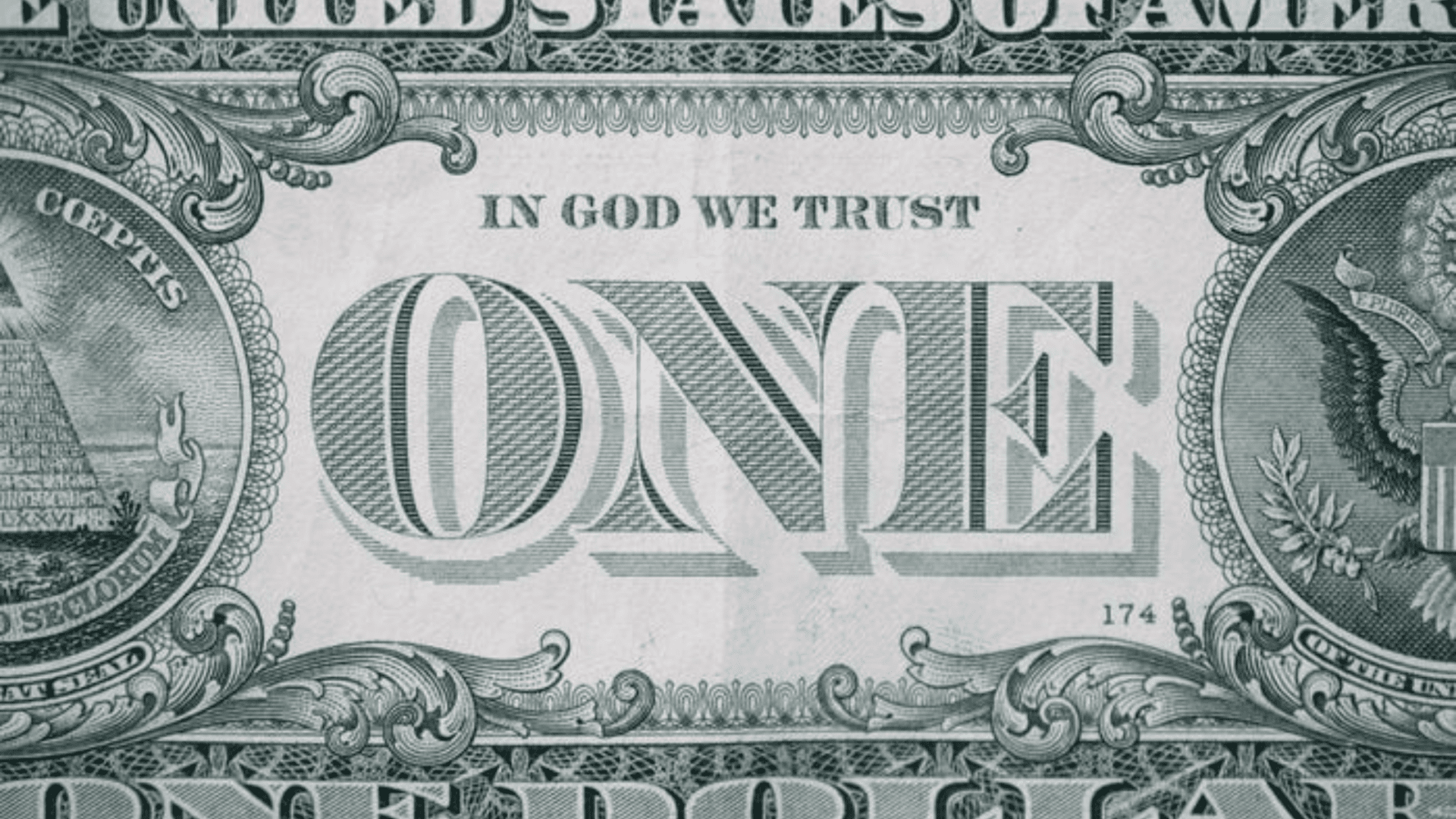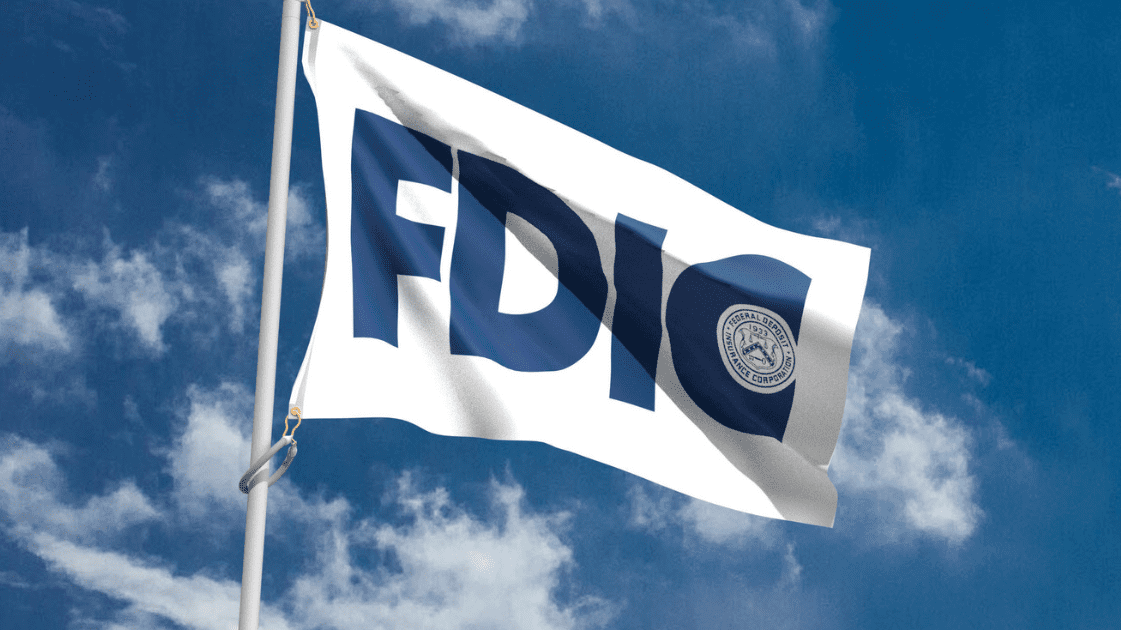For bankers, U.S. currency is a familiar tool of the trade. But beneath the surface of every dollar bill lies symbolism that often escapes notice, even among those who handle it daily. A Reader’s Digest article by Marissa Laliberte explores these lesser-known symbols.
Eye of Providence on the Dollar Bill
One of the most discussed symbols on the dollar is the Eye of Providence, the “all-seeing eye” that floats above an unfinished pyramid.
Located on the reverse side of the Great Seal, this imagery dates to 1782 and represents divine guidance over America’s future. The unfinished pyramid symbolizes a country still in the making, with its 13 steps corresponding to the original colonies. The eye, enclosed in a triangle and surrounded by rays of light, adds an air of mysticism and higher purpose.
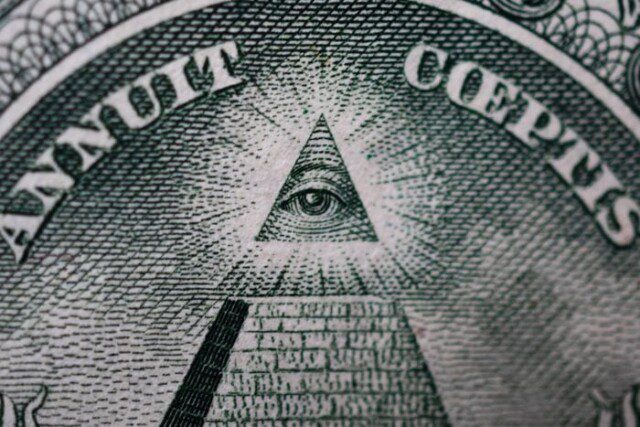
Latin Phrases on the Dollar Bill
Two Latin phrases appear above the pyramid:
- Annuit Coeptis, which translates to “He (God) has favored our undertakings.”
- Novus Ordo Seclorum, meaning “A new order of the ages.”
Contrary to some modern conspiracy theories, these phrases reflect the optimism and revolutionary spirit of the post-independence era—not a secret society’s agenda.
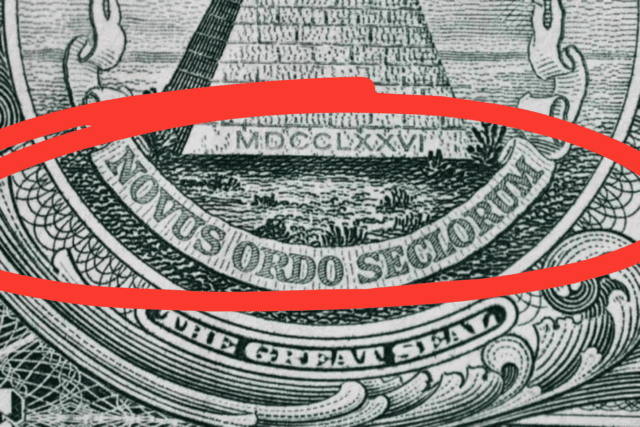
The Symbolism of Thirteen on US Money
Bankers will appreciate the consistency of the $1 bill’s design elements. The number 13—recalling the colonies—is present in several places:
- 13 arrows in the eagle’s left talon,
- 13 olive leaves and berries in the right
- 13 stars above the eagle’s head
- 13 stripes on the shield
While the superstition around the number persists in popular culture, on the dollar, it represents unity and original governance.
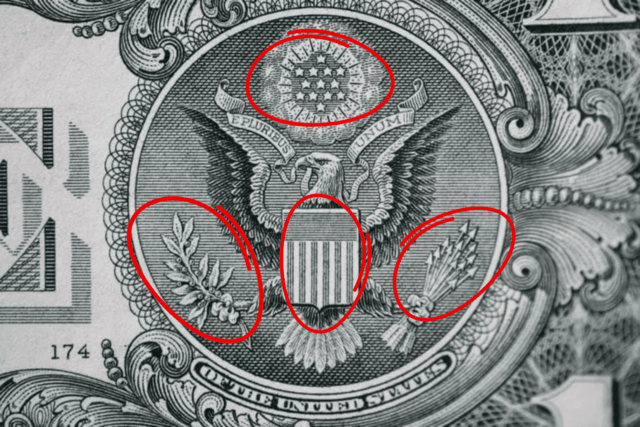
Interested in reading some more about currency?
“E Pluribus Unum”
On the ribbon in the eagle’s beak, appears E Pluribus Unum, meaning “Out of many, one.” For financial services professionals, this unifying motto resonates with the nation’s collective economic endeavors across diverse states, markets, and institutions.
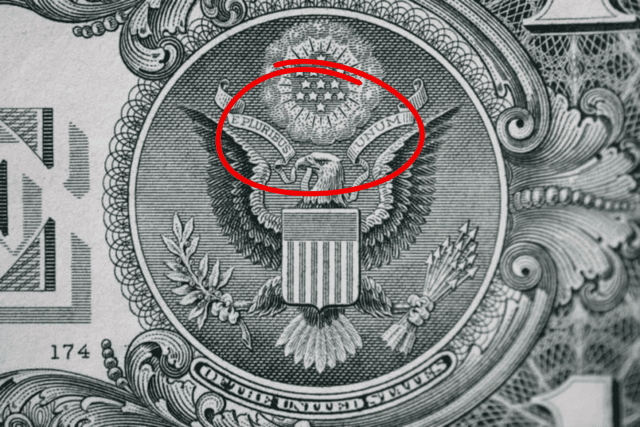
Roman Numerals on the Dollar Bill
The base of the pyramid is marked with MDCCLXXVI—1776 in Roman numerals—the year of American independence. This subtle detail grounds the imagery in a key historical moment, the foundation upon which the rest of the symbology is built.
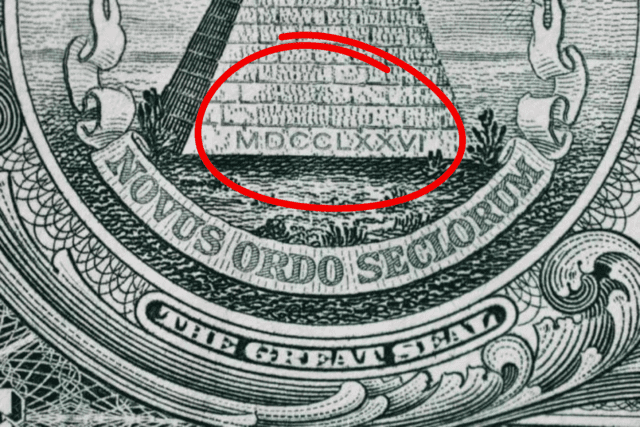
FUN FACT: Did you know there is a tiny owl hidden on the $1 bill?
Treasury Seal on the Dollar Bill
In modern banking practice, most financial professionals focus on the green Treasury seal and serial numbers. The seal indicates which Federal Reserve Bank issued the bill. The letter within the black Federal Reserve seal (A through L) corresponds to one of the 12 regional Reserve Banks.
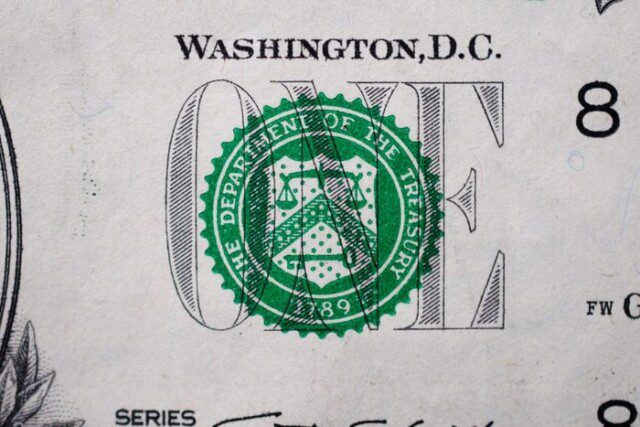
The One-Dollar Bill’s Hidden Messages
While the one-dollar bill may be the smallest denomination in circulation, it arguably carries the richest collection of symbols and messages. For banking professionals, these details underscore how currency isn’t just a medium of exchange—it’s a canvas for history, philosophy, and national identity.
Building on this appreciation for the dollar’s intricacies, our next article, “Guide to Understanding U.S. Currency Security Features,” will explore the essential elements that ensure its security.
The complete version of this article can be found at Reader’s Digest.

